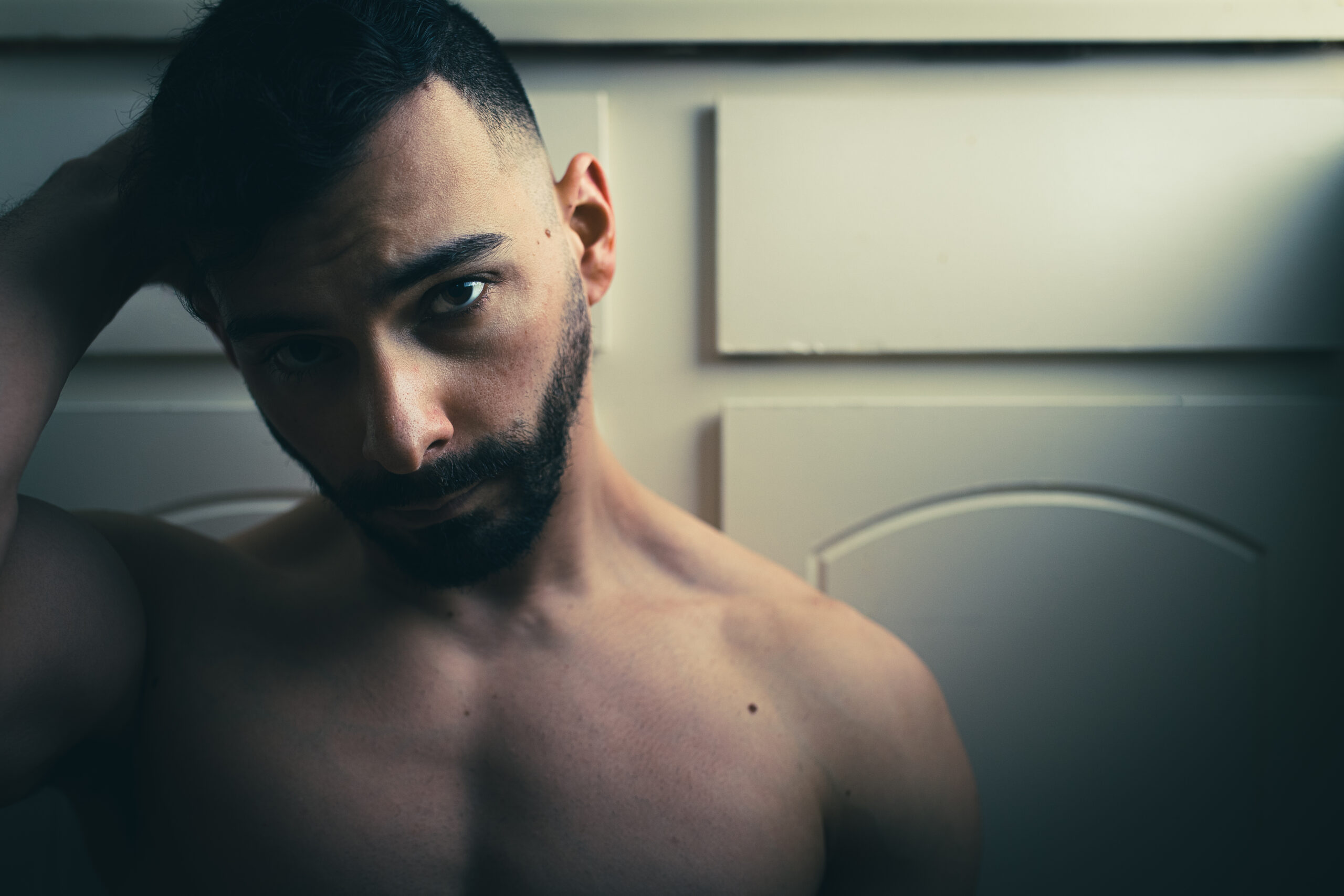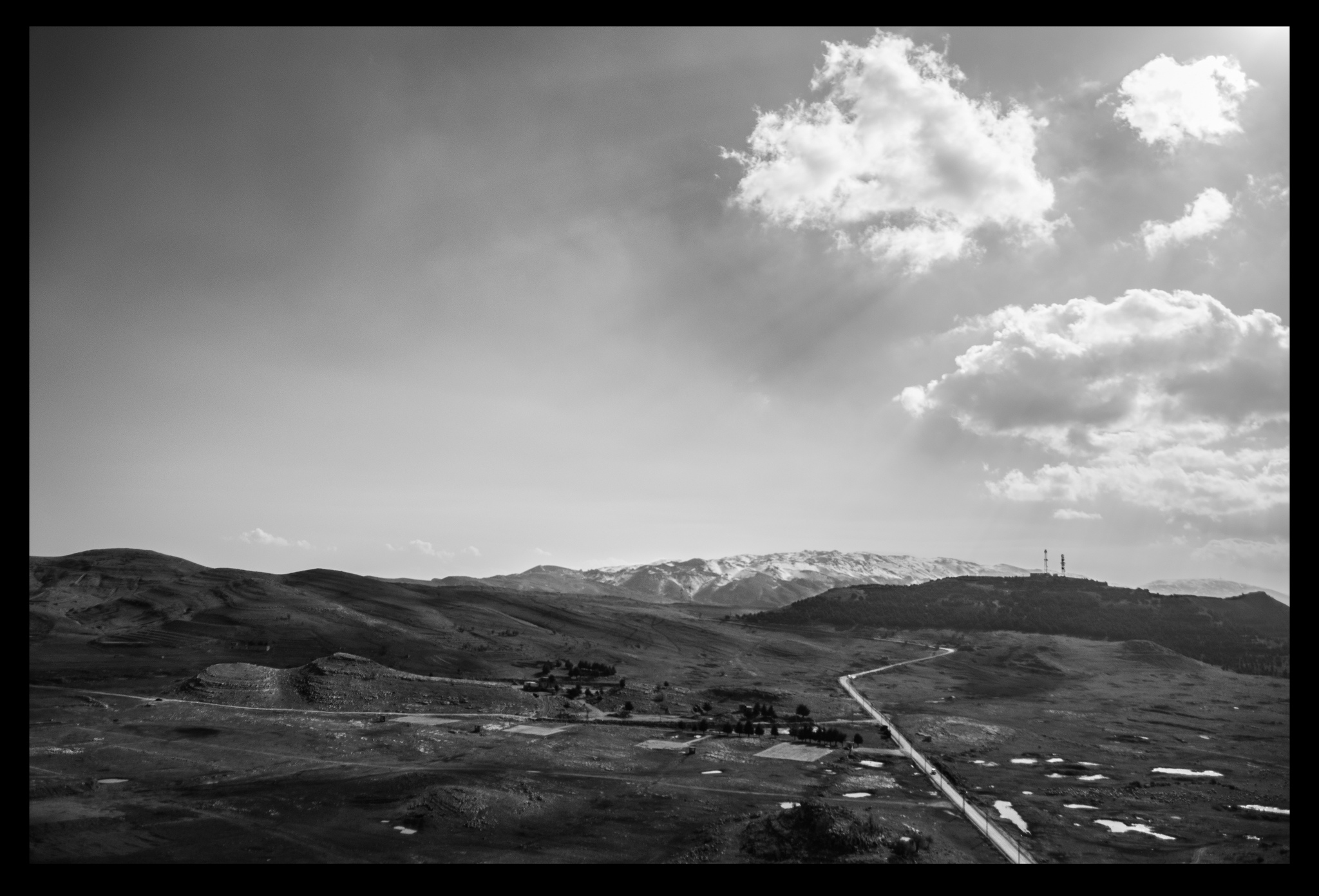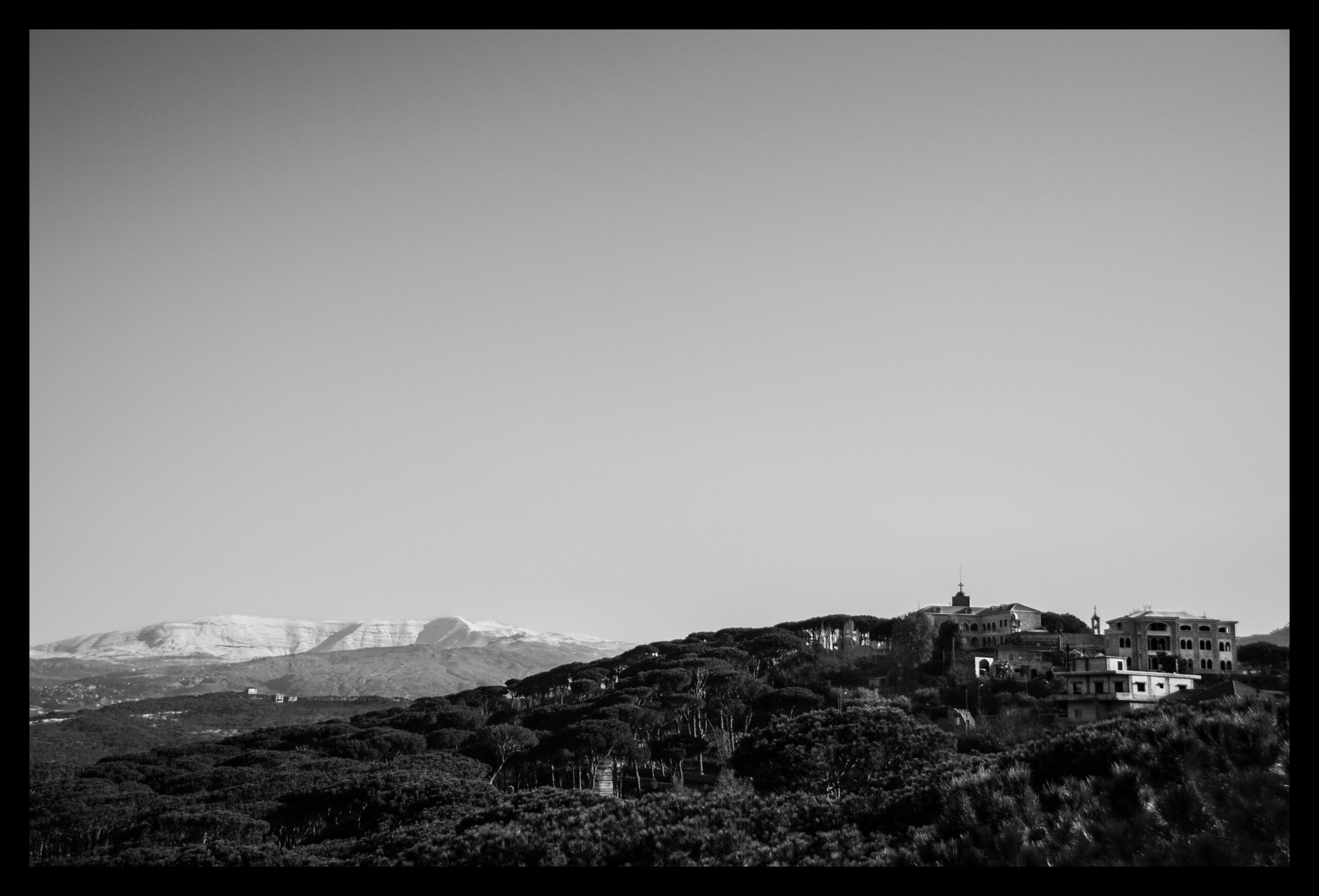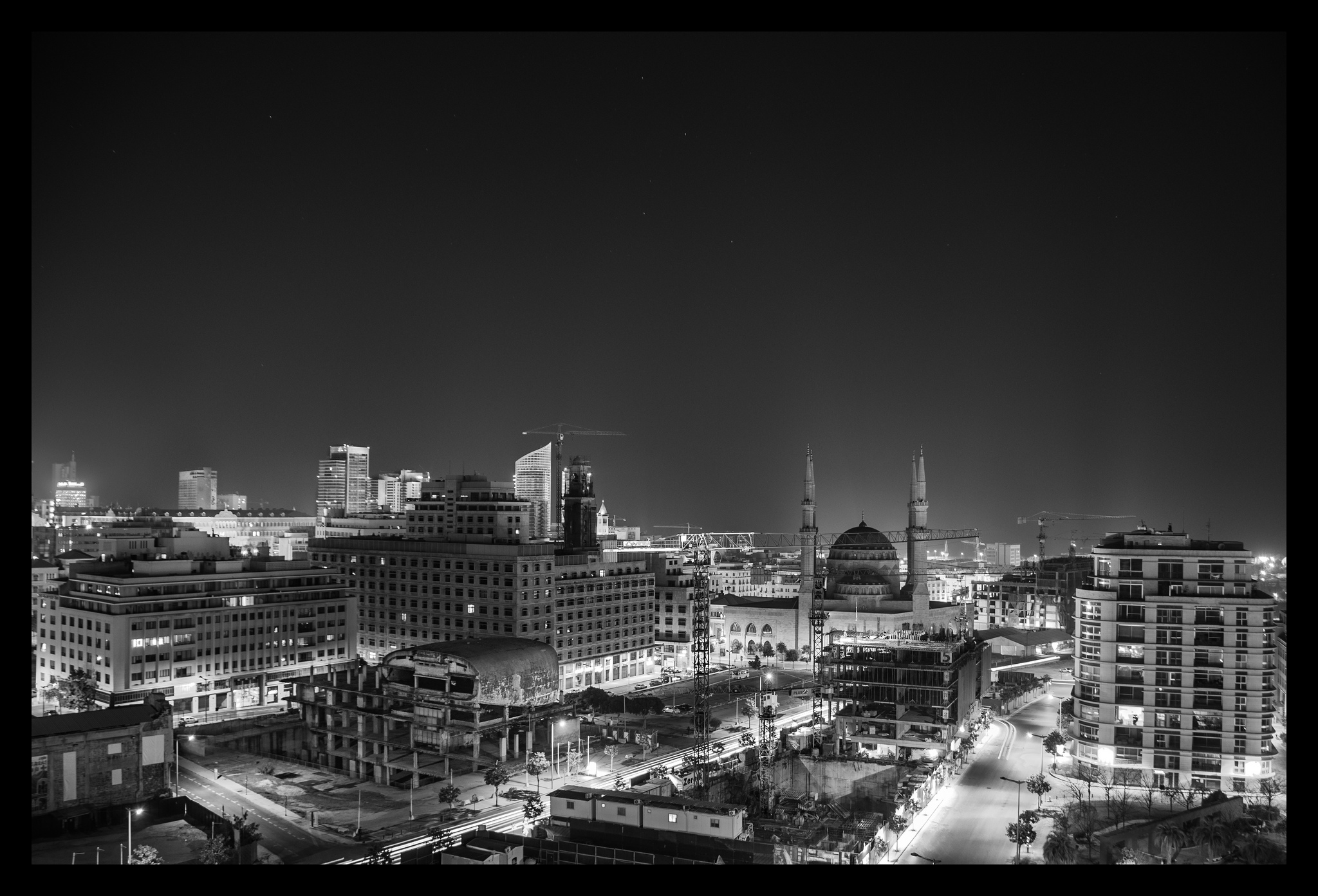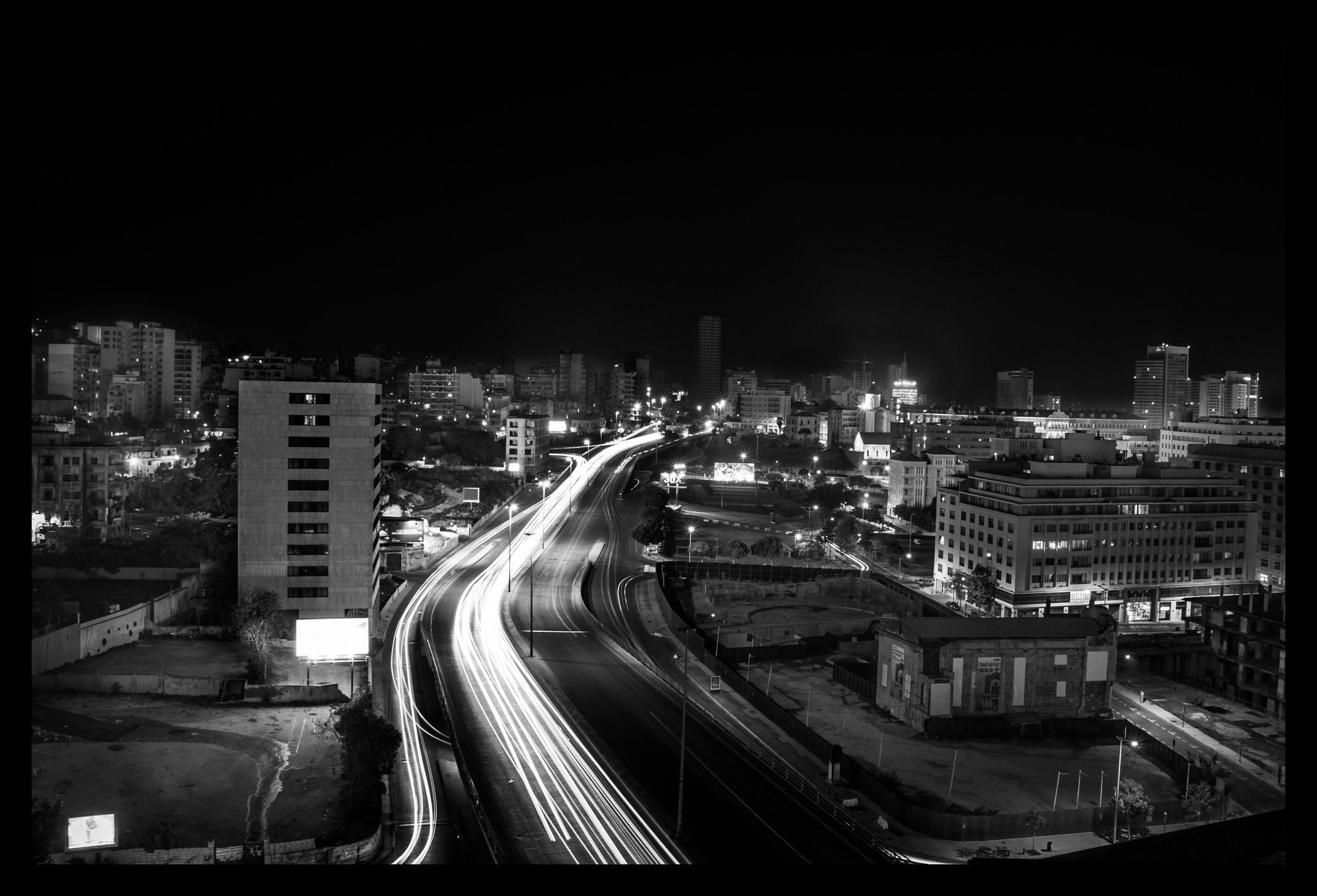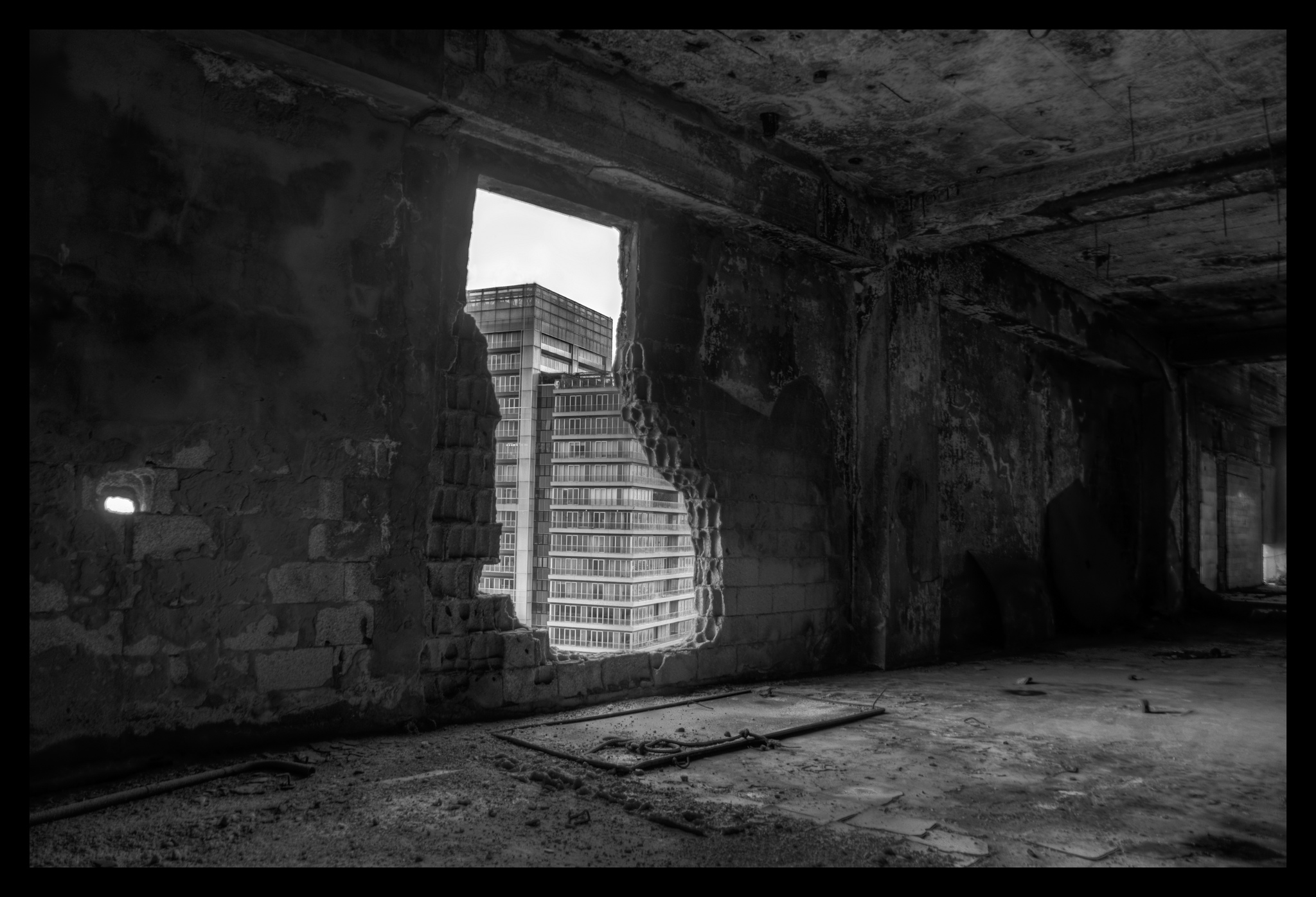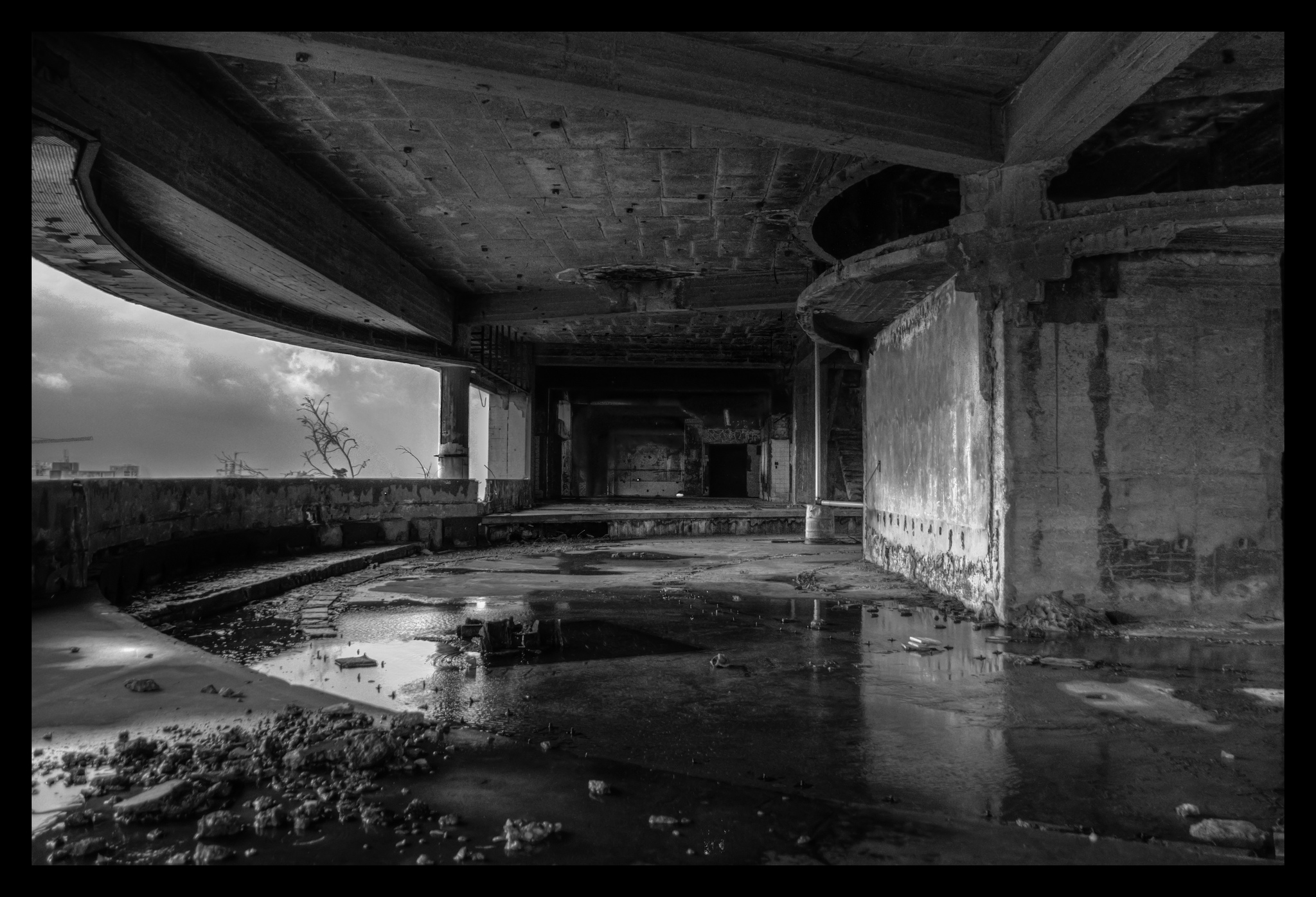
Almost every abandoned building shoot has a stalk that goes along with it, this one is no different. The building is a 1975 Holiday Inn that was open for less than a year. It now serves as a strategic pawn in the Lebanese civil war. I originally noticed the building while driving through the city. As it broke the plane of the skyline, I knew it was something I had to explore. I started the stalk the best way I know how, researching the location. Learning the lay of the land, what the building looks like, any possible ingresses and where to hide the transportation. Two nights, my cousins and I were walking through the city, I saw the top of the building break through the skyline once again. There it was in all its glory, this time I was more prepared. I grabbed a flashlight from my backpack and made my way towards what I thought was the best possible route. With my cousins following me I tried to keep a good distance ahead of them, not knowing what to expect I didn’t want to involve them in my antics. I came to the wall and told them to wait there while I hopped the barrier and proceeded toward the building. In the main courtyard I saw a shadowy vehicle parked, but didn’t think too much of it. I found a unlocked service door from the side of the building and began my journey up the stairs. Once I made it up several flights I opened a door to a floor and took a look around. It was dark and cold, stripped of almost all of its contents. I had seen enough for now. I headed back, feeling great I had discovered a viable entrance. At the bottom I rejoined my cousins and suggested we check out the rest of the perimeter. Now, my cousins are older than I, but they were very supportive of my childlike curiosity. We walked to the front entrance of the courtyard, there to greet us were two soldiers of the Lebanese army, toting M16s. Apparently, the hotel and it’s grounds were still being occupied. Parked in the courtyard were several armored personnel carriers and a few more men. My cousin Elias decides to ask permission for a visit later in the week, a technique I’m usually unfamiliar with. As expected they politely deny us, saying we could put in a request but it would likely get denied. Defeat is a terrible feeling, one in which I rarely accept. However in this situation, in a foreign country, my options were very limited. The next day I receive a text message from Elias. Currently finishing medical school, he has a large span of connections. He writes to me, “my friends father is the general, we will visit the hotel.” At this moment I am filled with excitement, and to be honest a large amount of doubt. His next day off was very rainy and dreary. We returned to the hotel and spoke with the guards at the entrance once again. Remembering who we were, they let us through and escorted us towards the makeshift office they had set up on the ground floor. Elias begins speaking with the officer in charge. Now, my Arabic is very limited, but I can read body language very well, and I can tell this isn’t going as he or I had hoped. I can hear the conversation get louder and louder until eventually my cousin walks out, and back into the courtyard where it’s still drizzling rain. I stand there with the soldiers, not knowing if I should follow him. They look at me, I look at them, we both look at my cousin pacing back and forth. The awkwardness, magnified by the language barrier and my hiking pack, stuffed with camera gear. I light a cigarette and look over to see them follow, common ground was found. I look over and see Elias still on his phone, five minutes, ten minutes, fifteen minutes. He finally returns to the office, phone still in hand, he gives it to the man he was previously arguing with. Elias turns around to me and says “we will enter now.” The soldier puts the phone up to his ear, “hello?” The conversation was short, very short.



